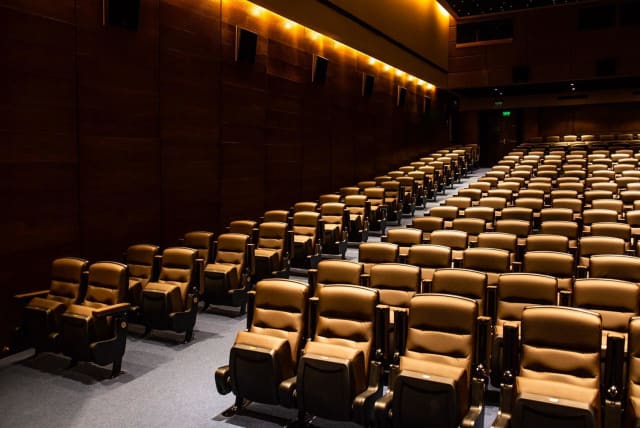
The big news on Jerusalem’s cultural scene is that for the first time ever, the capital will be hosting what is set to become the city’s annual Ladino music festival.
Produced by Renanot – The Jewish Music Institute, Festivaladino Jerusalem aims to position the city as “the world capital of Ladino,” the event’s artistic director, musicologist, and composer Ariel Lazarus explains.
Ladino music ranges from ancient music and liturgy to tunes and songs with Mediterranean, Balkan, and Andalusian influences, as well as contemporary Israeli music, with varied traditions and performance approaches reflecting the history of Sephardi Jews.
Alluding to the Jewish Eid al-Banat holiday
Festivaladino will allude to Eid al-Banat (Holiday of the Daughters) – traditionally celebrated on the sixth night of Hanukkah by some Jewish communities from the Middle East, North Africa, and the Balkans – with a concert by liturgical artist Shir Ifrah. The holiday honors heroic Jewish women. In this respect, the story of Sol Hachuel is perhaps the most iconic.

Born in Tangier, Morocco, at the start of the 19th century, 16-year-old Sol was arrested and taken to Fez, where the sultan sentenced her to be beheaded in the public square for refusing to convert to Islam. After her death Sol, or “Solica,” was declared a martyr. The Jews call her “Sol hatzadika” (the righteous woman Sol), the Arabs know her as “lalla Suleika” (the holy lady Suleika), and her burial place has become the site of pilgrimages.

Mariamne the Hasmonean, too, is memorialized on Eid al-Banat. The granddaughter of the last of the Hasmonean rulers, she was the second wife of Herod the Great, who, despite their 10 years of marriage and five children, had her executed for being the legitimate candidate to the throne of Judea and thus his rival.
Lazarus, recipient of the 2021 Yitzhak Navon Prize “for outstanding work in the field of music traditions” and director-conductor of the Israeli Ladino Orchestra – a central element of the festival – wants to turn the spotlight on “Ladino artists from Jerusalem and around Israel.”
He explains that Ladino has been sung and spoken inside the walls of the Old City since the days of the Ottoman Empire “because Jerusalem absorbed immigrants from Salonica, Turkey, and Spanish Morocco.”
It was Jerusalem, too, that inspired former president Yitzhak Navon to write the play Bustan Sephardi (Spanish Orchard). Set in the 1930s, it depicts life in a Sephardi neighborhood of the city.
Jerusalem was also the workplace of Turkish-born singer-songwriter, musicologist, and documentarian of Ladino songs Itzhak Levi, who composed music to accompany biblical verses and piyutim (liturgical poems) written, during the golden age of Jewish culture in Spain, by Judah Halevi, Solomon Ibn Gvirol, and Abraham Ibn Ezra.
It is also the place where Lazarus’ ensemble, the Israeli Ladino Orchestra, has flourished in recent years.
“For all those reasons,” he explains, “Jerusalem deserves an international Ladino festival.”
Festivaladino Jerusalem will showcase Ladino song, “from romance [a central form in Ladino literature, connected to the Iberian ballad] to copla [song based on biblical themes] to cantiga [popular modern song form of Ladino].”
Rachel Armon, director of the Renanot Institute, adds that Festivaladino “will bridge distant and diverse parts of the Jewish people, as Ladino songs and Spanish piyutim are deeply connected to many communities and audiences within Israel.”
It will also fill the gap left by the cancellation of the traditional Ladino festival in Safed this year.
For Lazarus, who has been giving volunteer concerts to refugees with his musicians throughout the war, the festival will “reflect the process of healing within Israeli society after the difficult events it has endured, and in that spirit, it offers a unique platform for musicians from the South and the North; as well as to [new] piyutim inspired by this period.” One of these new piyutim, “Or Hadash” (“New Light”) was composed by Lazarus to lyrics by MK Michael Bitton and is dedicated to the memory of fallen heroes of this war.
Through the festival, Lazarus seeks “to honor Jerusalem’s Ladino artists and choirs and to embrace artists from Israel’s southern border region.”
Festivaladino Jerusalem is slated to culminate in an academic conference dedicated to the work of Lazarus’s teacher and mentor, the cantor and musicologist Ezra Barnea, former longtime director of Renanot.
Barnea, says Lazarus, made a “significant contribution to the cultural empowerment and education of Sephardi Jewish music.”
Born in Jerusalem in 1935, Barnea grew up surrounded by Sephardi cantorial music. After his bar mitzvah, he became a cantor in the Bukharan neighborhood in Jerusalem, inaugurated a Sephardi cantorial school in 1985, and in 1989 received the Religious Affairs Ministry Prize for his activities on behalf of Jewish music.
Lazarus wishes a “reushita buena” (Ladino for “a good beginning”) to all involved in making the festival happen. Among “all the amazing artists, partners, and friends,” he makes special mention of festival manager Armon of the Renanot Institute; Vered Barnea of the Jerusalem Ladino Circle; Avi Shalom and the Council of the Sephardi Committee; the Spanish Consul’s cultural attaché; the World Center for North African Jewish Heritage; the Nahon Museum of Italian Jewish Art; and Heichal Shlomo [home to the Israel Ladino Orchestra].”
“May we witness the true and great Hanukkah miracle of the return of the hostages,” Lazarus concludes.
Advance registration at https://renanot.co.il/classes/12-2024/
- What: Festivaladino Jerusalem, the first full-scale Ladino music festival in Jerusalem
- Who: The Ladino Orchestra and artistic director Ariel Lazarus, and various artists
- Where: Dec. 28 at the World Center for the Heritage of North African Jews, 13 Hama’arviyim St.; Dec. 29 at Nahon Museum of Italian Jewish Art, 25 Hillel St.; Dec. 30 at Heichal Shlomo, 58 King George St.
- When: Dec. 28 (7:30-10 p.m.); Dec. 29 (12-4:30 p.m.); and Dec. 30 (10 a.m.-9:30 p.m.)
- Why: Three evenings dedicated to Ladino music, ranging from ancient and liturgical to contemporary Israeli sound.
- Price: NIS 25/30





































































































